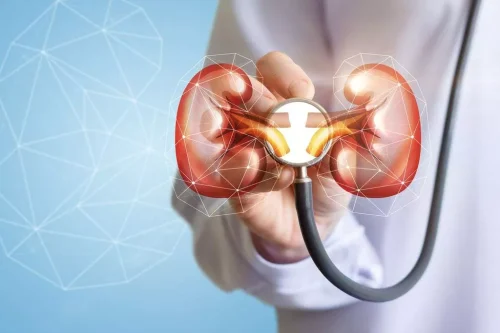How to Flush Alcohol Out of Your System

Mindful drinking can have a significant impact on reducing alcohol consumption and promoting a healthier relationship with alcohol. Take this quiz to learn how to be more mindful with your drinking habits. After a night of drinking, you may experience fatigue, queasiness, and low blood sugar. how do you get alcohol out of your system faster This is especially true if you did not consume adequate food before, during, and after drinking alcohol. Eating complex carbohydrates like toast, crackers, and bagels can help alleviate nausea and bring your blood sugar levels back up. Addressing nausea is important to prevent vomiting that can further dehydrate you.

Factors That Might Affect How Long Alcohol Stays in the Body
Drinking water can help on how to flush out alcohol from your system. You need to drink no specific amount of water to remove alcohol from your system. However, drinking plenty of water will help to speed up the process. If you’re not careful, consuming excessive water could be harmful. Hyponatremia, a disorder in which the sodium level in your blood drops too low, can be brought on by excessive water consumption.
Addiction Therapist: What They Do & How to Find the Right One
- Through past research, it is well understood what types of drugs produce which types of metabolites and how long those metabolites stay in the system.
- When the gut barrier is compromised, undigested food particles and toxins leak into the bloodstream, triggering immune responses that may lead to inflammation and autoimmune diseases.
- Alcoholism is a progressive disease that destroys lives, families, and careers.
- You may feel the effects of alcohol faster when it’s consumed with carbonated beverages, and your body may metabolize the alcohol at a faster rate.
- Multivitamins contain antioxidants and other nutrients that can help to reduce the amount of alcohol in the urine, as well as other substances.
- One study published in Psychoneuroendocrinology in 2017 also found that drinking water may help reduce your urge to order another drink altogether.
Ultimately, it’s the withdrawal experience that poses the greatest challenge to getting alcohol out of your system. If you’re apprehensive about quitting drinking because of what withdrawal may hold, alcohol detox rehab can provide the supports needed to ease the process along. Alcohol’s ability to slow down the body’s processes causes damage to your cells and major systems over time.
How Is Alcohol Metabolized by the Body?
We’ll discuss the essential steps you need to take to properly flush alcohol from your system and ensure you’re ready to pass that drug test. So, read on to find out how to quickly and safely flush alcohol from your urine. On average, your liver can only metabolize about one ounce of alcohol per hour—so any excess keeps circulating your bloodstream, raising your body’s blood alcohol concentration (BAC).


More people may be asking this question, given the coronavirus outbreak’s impact on the global rise in alcohol consumption, also known as pandemic drinking. According to the WHO, Twelve-step program alcohol consumption contributes to 3 million deaths yearly 1. Alcohol poisoning contributes to the harm experienced by the population as a whole. It acts like poison upon reaching a certain concentration level in the blood. It disrupts the function of blood circulation, affecting the brain and other organs.
- The remaining 10% is removed through the lungs (breathing), kidneys (urine), and skin (sweating).
- However, the toxins in alcohol actually lower the amount of glucose in your bloodstream, which can lead to hypoglycemia (low blood sugar).
- Your body breaks down alcohol at a rate of one serving per hour, but the traces of alcohol remain in your system much longer.
- If you or a loved one struggles with alcohol dependence, don’t hesitate to seek professional help.
If you’re tired of feeling terrible for days after you stop drinking, it might be time to try medication-assisted treatment for alcohol use disorder. The occasional hangover may just be the reminder you need to be more mindful of drinking moderately next time. But if hangovers become more frequent, it might be time to get some help to cut back on your consumption. Our online alcohol rehab allows you to set goals for reducing drinking or eliminating alcohol altogether. Regular exercise increases metabolism and promotes circulation, helping to eliminate toxins from the body faster. Physical activity also supports overall liver health and aids in detoxification.
- The effects of a hangover after binge drinking can continue for the next few days.
- Turns out, a little cardio goes a long way into preventing you from getting a tad too happy during happy hour.
- But not to worry—we’ve got tips to help you clear it out of your body fast.
- Understanding this process can help you make informed choices about drinking responsibly.

Green tea contains antioxidants that can help to reduce the amount of alcohol in the urine, as well as other substances. Additionally, green tea can help to flush toxins from the body, which can also help to reduce the risk of a false positive on a urine test. Caffeine is found in a wide variety of foods and beverages including coffee, tea, energy drinks, and chocolate.






